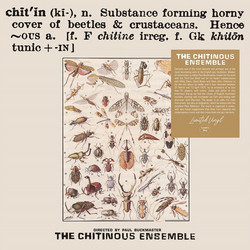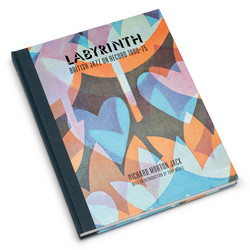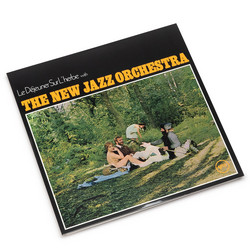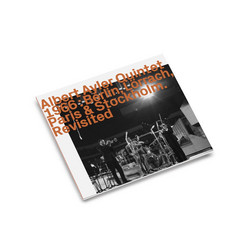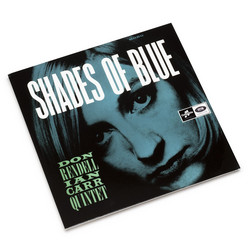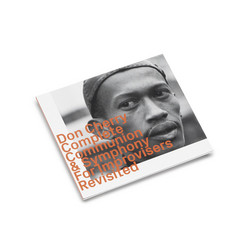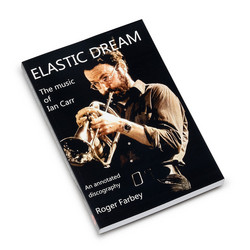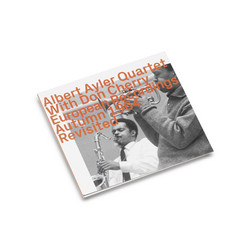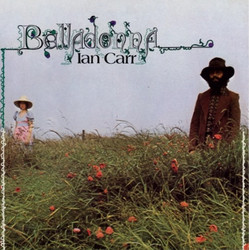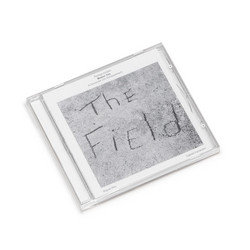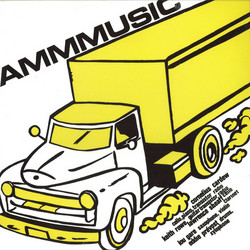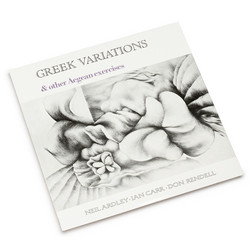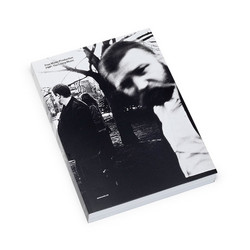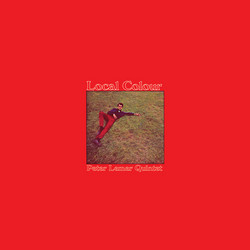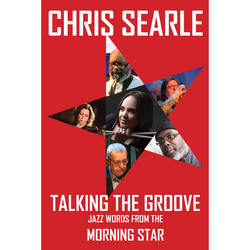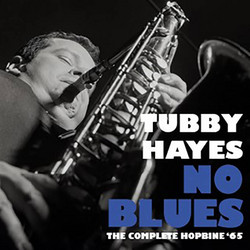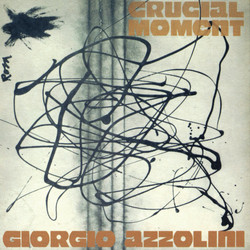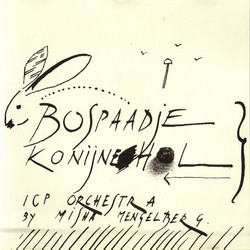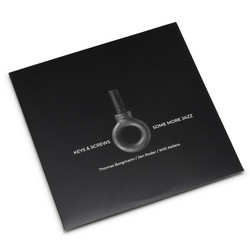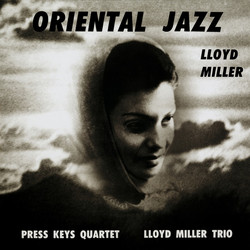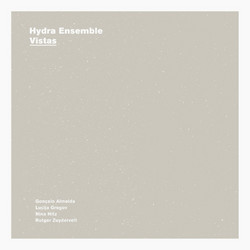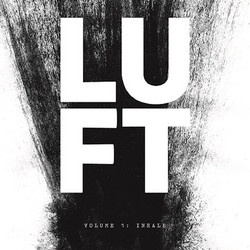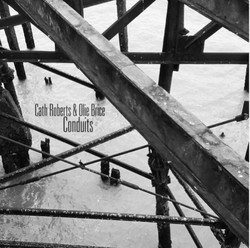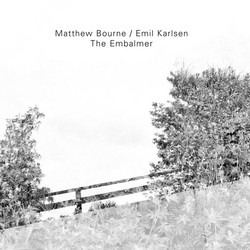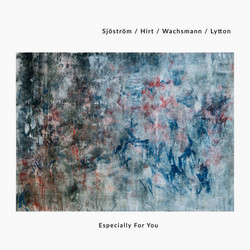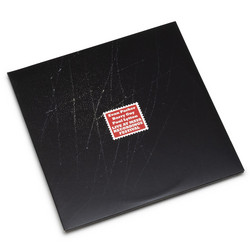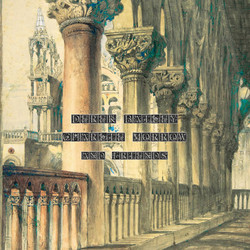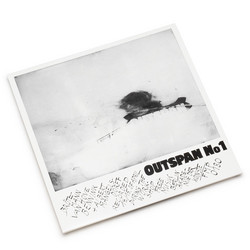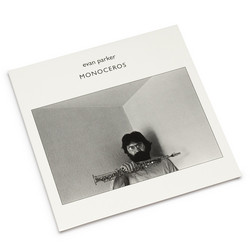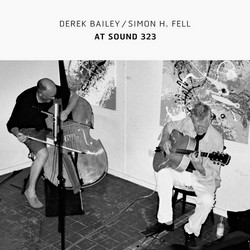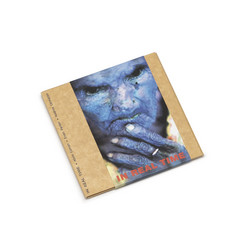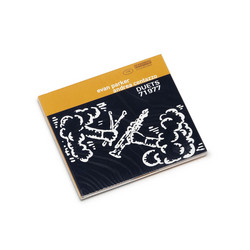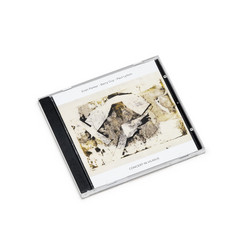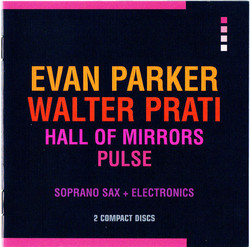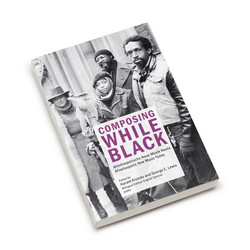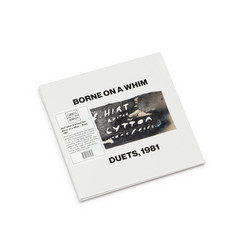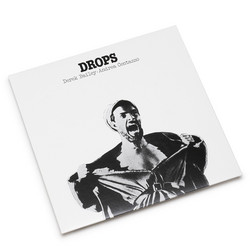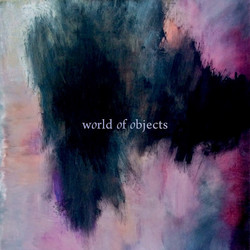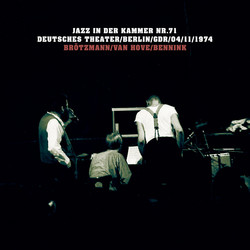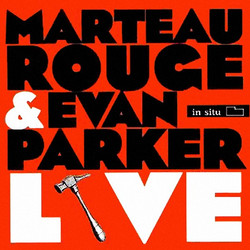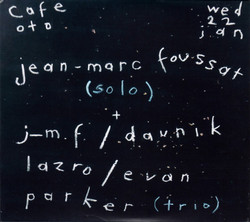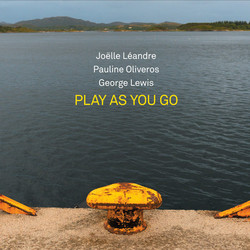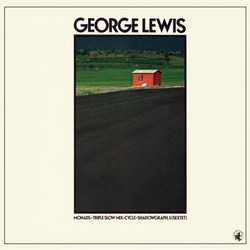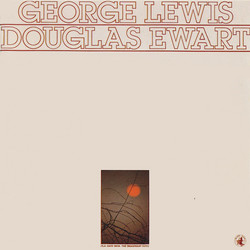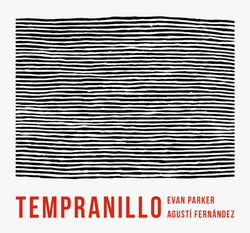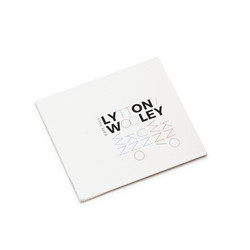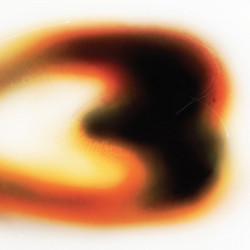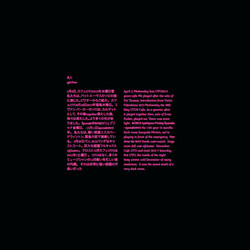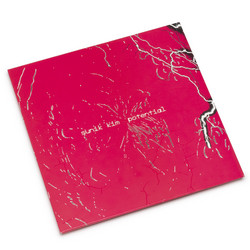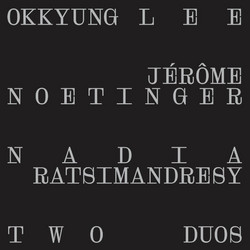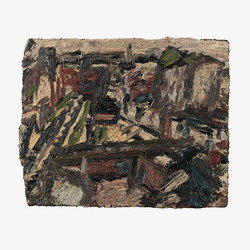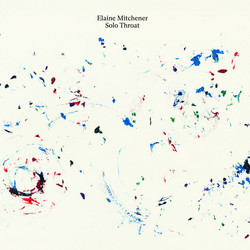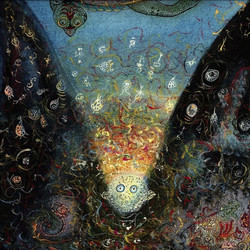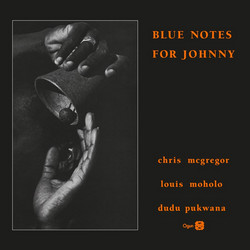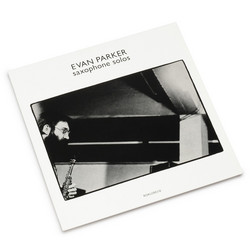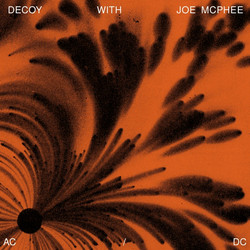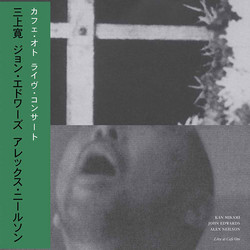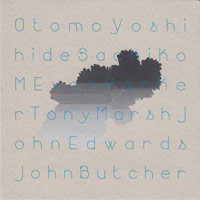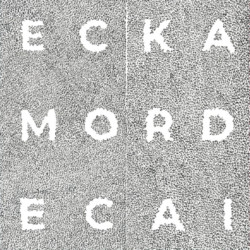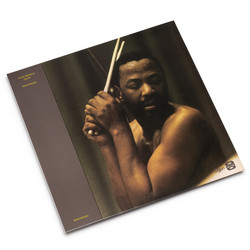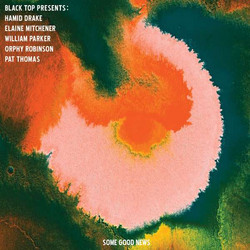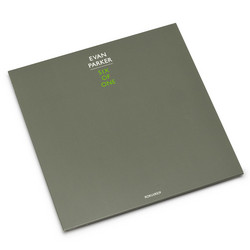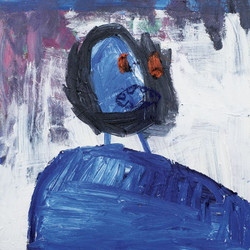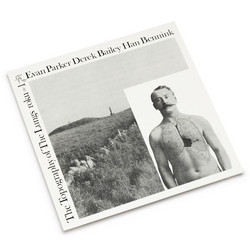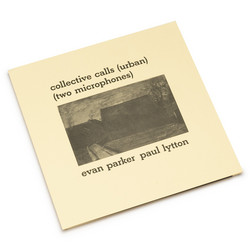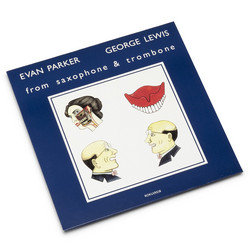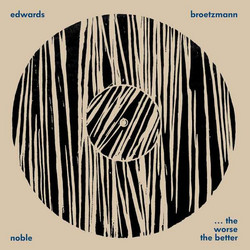Evan Parker, Han Bennink, Derek Bailey, Paul Lytton, George Lewis
The Topography of the Lungs / Collective Calls / From Saxophone & Trombone (3LP Bundle)
** The three recent Otoroku reissue LPs in a special discounted bundle ** Otoroku, the in-house label for the London venue, Cafe Oto, returns with three new stunners from the legendary Incus catalog - the seminal imprint jointly founded by Derek Bailey, Evan Parker, and Tony Oxley - the first ever vinyl reissues of Evan Parker / George Lewis’s stunning “From Saxophone & Trombone” (1980), and Evan Parker / Paul Lytton’s mind-bending “Collective Calls (Urban) (Two Microphones)” (1972), as well as much needed repress of Evan Parker / Derek Bailey / Han Bennink’s “The Topography Of The Lungs”(1970). Each highly distinct, while collectively illumining the ever shape shifting creativity of Evan Parker, each in its own way is a revelation and high-water mark in the history of British free improvisation. Since its founding in 2012, OTOROKU, the in-house label for the London venue, Cafe Oto, has become a crucial vehicle for documenting the activities of contemporary experimental music, as well as a carefully curated series of reissues by the artists closest to their hearts. The last year or so has witnessed them drop some incredible LPs by Park Jiha / Roy Claire Potter, Billy Steiger, Ecka Mordecai, Maggie Nicols, Sunik Kim, and Blue Notes, and now they return with a batch of some of their most exciting reissues to date: the first ever vinyl reissues of Evan Parker and George Lewis stunning “From Saxophone & Trombone” and Evan Parker and Paul Lytton’s mind-bending “Collective Calls (Urban) (Two Microphones)”, as well as much-needed repress of Evan Parker, Derek Bailey, and Han Bennink's seminal “The Topography Of The Lungs," each originally issued by Incus in 1980, 1972, and 1970, respectively. Evan Parker first emerged onto the London scene during the mid-1960s as a member of Spontaneous Music Ensemble, a loose collective of improvisers founded by John Stevens and Trevor Watts, that endeavored to explore new forms of group collaboration and experimentation. With his chops well honed, Parker’s earliest recorded release would emerge a handful of years later within SME’s legendary 1968 LP, Karyobin, playing alongside Stevens, Derek Bailey, Dave Holland and Kenny Wheeler, laying the groundwork for an incredibly prolific period over the coming decades that would encounter him forging collaborations across Europe, as well as artists from various corners of the globe and at home, working within the Pierre Favre Quartet, Instant Composers Pool, Globe Unity Orchestra, Brotherhood of Breath, London Jazz Composers Orchestra, and Company - the rotating group he helped found with Derek Bailey - as well as in the bands of Peter Brötzmann, Manfred Schoof, and Alex von Schlippenbach, his own work as a solo artists and in jointly billed duos and ensembles. Among the high-water marks of the later are three LPs originally issued by Incus and now reissued by OTOROKU, 1970’s “The Topography Of The Lungs”, recorded with Derek Bailey and Han Bennink; 1972’s “Collective Calls (Urban) (Two Microphones)”, a duo with the percussionist Paul Lytton; and “From Saxophone & Trombone”, a duo with George Lewis.
Evan Parker, Derek Bailey, Han Bennink “The Topography Of The Lungs” (LP)
There is arguably no single LP to have emerged from the British free improvisation scene that holds an equally legendary status to that of “The Topography Of The Lungs”, recorded by the trio of Evan Parker, Derek Bailey, and Han Bennink, and issued in 1970 as the first release on Incus, the seminal label jointly founded by Bailey, Parker, and the drummer Tony Oxley. A landmark in numerous terms as well as being the first album to feature both Parker and Bailey as leaders, drawing both artists into the public consciousness as towering figures in the landscape of British and European free improvisation where they would for decades to come. In creative terms, “The Topography of the Lungs” represents an important position in the history of avant-garde music. While not entirely unrelated to its American cousin, the form of free improvisation that Parker, Bailey, and Bennink coax into being is incredibly distinct. Where the American idiom of this moment drew upon roots from Africa, the blues, and jazz, producing soulful and emotive music even in its most extreme moments, the English idiom, as charted by this trio, embraces an entirely different set of syntaxes to establish the language of expression and communication, drawing heavily upon Bailey’s ideas about producing a “non-idiomatic” (without precedent or association) music. As Parker states in the album’s liner notes, "To talk further of the music we play is difficult. Its criteria for success exist, but are elusive and indefinable beyond the intuitive level. We operate without rules (pre-composed material) or well-defined code of behavior (fixed tempi, tonalities, serial structures, etc.), and yet we are able to distinguish success from failure." Fittingly, there’s a palpable sense of risk across the four real-time compositions: “Titan Moon”, “For Peter B. & Peter K.”, "Fixed Elsewhere”, and "Dogmeat," all recorded in single-go in London on the 13th of July, 1970. Embodying a furious sense of energy, propelled by Bennink’s often violet (and humorously imbued) work behind the drums, Parker and Bailey dance in a carefully honed conversant interplay of brittle, sharp utterances at the borders texture and tone with such unity, dexterity, and persistence that their collective work washes over the ear like drops of rain in a storm.
Absolutely thrilling and unmistakably ahead of its own time and arguably our own, more than fifty years down the road, “The Topography Of The Lungs” is nothing short of high-water mark in the entire history of free improvisation, hardly the emergence of two of the idiom’s greatest players as solo voices. OTOROKU’s brand new, much-needed repress of their 2014 reissue - out of print for most of the time since—is issued in a limited edition of 500 copies on vinyl, complete with the original liner notes, penned by Parker, alongside his updated notes from 2014. Easily one of the most important free jazz / free improvisation reissues to re-emerge this year. As essential as they come and not to be missed. Mythically referred to as ‘An Improvised Urban Psychodrama In Eight Parts”, “Collective Calls (Urban) (Two Microphones)”, Evan Parker and Paul Lytton’s mind-bending “Collective Calls (Urban) (Two Microphones)” is one of the great artifacts in the early Incus catalog, being the label's fifth release, and as such one of the crucial blueprints from British free improvisation during the 1970s. At the time of the album’s recording, Parker had only recently recorded the groundbreaking The Topography Of The Lungs” and the equally noteworthy “Music Improvisation Company” with Derek Bailey, Christine Jeffrey, Hugh Davies and Jamie Muir, but was already thinking, ‘what’s the next thing?’ With the drummer Paul Lytton - a founding member of the London Musicians Collective - he found the answer to his pursuit.
Evan Parker / Paul Lytton “Collective Calls (Urban) (Two Microphones)” LP
Recorded in the loft of The Standard Essenco Co on Southwark Street by Bob Woolford (who also recorded “Topography of the Lungs”), for the “Collective Calls (Urban) (Two Microphones)” sessions Lytton arrived with an arsenal of tools for generating sound, notably percussion, pre-recorded material, homemade instruments, and electronics. The latter drew upon his first encounters with electronics in 1968, when playing drums on White Noise’s seminal LP, “An Electric Storm”, as well as witnessing Hugh Davies’ and the drummer John Stevens’ both augment acoustic sound sources with contact mics and electronic. In addition to musique concrete, these touchstones provided the necessary influence for his entirely unique form of instrument invention within the idiom of free improvisation that features across the length of “Collective Calls (Urban) (Two Microphones)”, particularly the sounds of an object that used several single-coil electric guitar pickups, long wires, and strings with connected foot-pedals to modulate pitch. Given his state of mind going into these sessions, it’s little surprise to find that Parker wasn’t one to one-upped. In addition to his saxophone playing, he also contributes interventions on his own homemade contraptions and cassette recorder (playing back previous recordings of the duo into the mix), with the pair pushing the dynamic and sound palette of the LP into realms far more expected on the recordings of Gruppo di Improvvisazione Nuova Consonanza, Musica Elettronica Viva, Anima Sound, The Scratch Orchestra, or perhaps even the Folkways record, “Sounds of the Junkyard”, that Lytton was obsessed with around the time he entered the studio with Parker, over what might traditionally regarded as free jazz.
Encountering Parker pushing into new territory, shape shifting as ever, viewed through a slightly different lens, it would be easy to mistake “Collective Calls (Urban) (Two Microphones)” as work of noise: his screeching lines on saxophone and mysterious interventions on tape and other instrumentation rolling at rapid fire into the groundwork of rattling percussion, pre-recorded material, homemade instruments, and electronics set into play by Lytton. The collective outcome, while focused and considered, is unmistakably a joyous immersion in the joys of real-time music making, responsiveness, and boundary pushing, producing something entirely singular in its moment. An abstract mutant at the outreaches of free jazz, years if not decades ahead of its time, OTOROKU has done the world a great service by bringing Evan Parker and Paul Lytton’s "Collective Calls (Urban) (Two Microphones)” back into the consciousness after remaining out of print for years. Issued in a very limited vinyl edition, it’s an absolute must for any fan of Parker, Lytton, noise, and free improvisation at large.
Evan Parker / George Lewis “From Saxophone & Trombone” (LP)
While British free improvisation was and remains very much its own thing, it was far from isolated. Nearly all its central players from the 1960s, 70s, and 80s, forged strong creative connections across the globe. One of these important pathways was between members of the Chicago and New York-based collective, the Association for the Advancement of Creative Musicians, which counted Anthony Braxton, Wadada Leo Smith, Muhal Richard Abrams, the members of Art Ensemble of Chicago, Jodie Christian, Fred Anderson, Steve McCall, and numerous others as members. While recordings between members of the AACM and British players are reasonably rare - Derek Bailey’s collaborations with Anthony Braxton being the most recognizable—each is remarkable and important on both creative and cultural terms and helps to illuminate the important mission of free improvisation to establish a collective linguistic means to create and communicate despite difference and distance. Among the most fascinating and arguably sinfully neglected of these documents is Evan Parker’s 1980 duo LP with trombonist, computer music pioneer, historian, academic, and theorist George Lewis, “From Saxophone & Trombone”, originally issued by Incus.
Born in 1952, George Lewis belongs to the second generation of the AACM, having joined at a fairly young age in 1971. Both an intellectual and musical prodigy, Lewis has cut a wide path over his long career, working across numerous field: as composer and improviser for trombone and acoustic instruments, as early pioneer of computer music - composing and writing innovative software - as historian and writer (most notable via his monumentally important book “A Power Stronger Than Itself: The AACM and American Experimental Music” ) and as a theorist, drawing to light the long history of systemic racism in experimental music. Equally of note, during the same year that he recorded “From Saxophone & Trombone” with Evan Parker, he also became the second music director of The Kitchen, succeeding Rhys Chatham.
Parker and Lewis first met at Moers festival, in Germany, where Lewis was part of Anthony Braxton’s ensemble playing excerpts of Coltrane’s “Giant Steps”. The two hit it off, leading to Parker inviting Lewis to record with him for Incus, instigating the trombonist’s first foray into British improvisation, and subsequently one of the wilder outings in his long career. Recorded at The Art Workers Guild, a Georgian Hall in Bloomsbury, London, notably for its lofty ceilings and hard wooden floors - a room that Parker described a perfect room to exercise an instrument to its full length—to ‘run the full length of the staircase’ - “From Saxophone & Trombone” is a striking exercise in pacing and restraint. While full of starkness and avant-garde burbles, bubbles, breaths, and rapid fire lines, there’s a presiding sense of calm the runs through the record. The Early stages of the album set the stage, across which Parker and Lewis unfurl a glacially paced, droning dirge, threading their tones together to create a brilliant sense of harmony within the dissonances, before slowly moving toward more fractured positions of abstraction, in what amounts to a startling and unexpected conversation between two young masters of free improvisation, from radically different positions, finding a shimmering common ground.
Yet another high-water mark in the Incus catalog, and arguably among both Parker and Lewis’ best but least acknowledged efforts, OTOROKU’s first ever vinyl reissue of “From Saxophone & Trombone” is nothing short of revelation. Grab it while you can!
